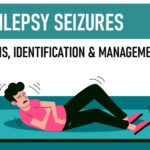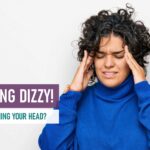What is Central Pain Syndrome (CPS)? What are the symptoms? Central Pain Syndrome (CPS) is a rare neurological disorder caused by damage to or dysfunc...
Migraine-Associated Vertigo and Nausea in Adults and Children
Have you experienced vertigo, nausea, or both during a migraine? Here are some tips to help you manage these common symptoms....
World Brain Day 2019 Focuses On Migraine – The Painful Truth
On July 22 2019, the World Federation of Neurology dedicated this year’s World Brain Day’s theme to share powerful information about the most comm...
Feeling Dizzy Always? You May Be Suffering From Vertigo
Everyone has felt a little dizzy at least once. Many parts of your body, including eyes, brain, ears, spine and nerves in feet, work together to keep ...
Tic Disorders and Tourette Syndrome – Should You Be Concerned?
Tics are more common disorder than people tend to think. Tics are defined as repeated, sudden, rapid, non-rhythmic muscle movements including sounds o...
Good Cholesterol Can Positively Impact Women’s Brain Health
Women live longer than man, says the statistics. However living longer doesn’t necessarily mean living better. Too often dementia robs older women o...
10 Proven Ways to Improve Your Sleep – Tips from World Sleep Society
A good night’s sleep is just as important as regular exercise and a healthy diet. Research says that poor sleep has an immediate negative effect...
How to Jot Down Your Migraine Patterns?
Everyone experiences migraine differently. Therefore care for a person with migraines are personalized depending on their occurrence or patterns. This...
Dementia, Not a Normal Part of Growing Old
Alzheimer’s disease and other dementias are not a part of normal aging. Normal aging may lead to some memory problems, but it is not the same as dem...
Some Principles of Communication with People with Dementia
Seven tips for communicating with those who have dementia. During daily interactions with my patients I have learned some principles of communication,...






